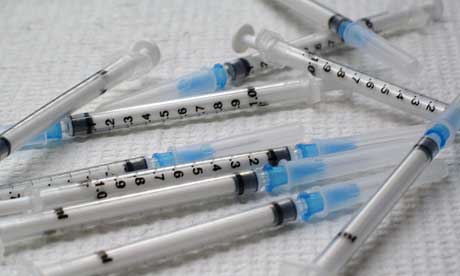
Travel healthcare is not the place to cut corners. Undertake research, forward plan and shop around: savings can be made without jeopardising your wellbeing
A surprising number of people going on extended trips start organising their immunisations far too late. Jabs can be done last minute, but there is better immunisation cover and more scope for shopping around if you start the process several months before departure.
There is a muddle of rules regulating what is and isn’t free on the NHS. Rules vary even within England, and different GP practices have different charges. Generally, though, travel vaccinations and pills need to be paid for.
The cheapest route to getting fully immunised is by booking a travel consultation with your practice nurse. She’ll be able to trawl back through your notes and ensure that you are properly protected with regard to your childhood vaccines – innumerable travellers have missed routine jabs at some point.
Practice nurses can often help with ‘catch-up’ immunisations, which are sometimes free of charge. Perhaps just as importantly, they can tell you which vaccines don’t need boosting. In addition to childhood vaccines, NHS patients can also receive pre-travel immunisation against hepatitis A and typhoid.
Tetanus is now delivered in combination with diphtheria and polio and is free of charge up to the age of 18, and if the tetanus element needs to be boosted. People requiring a booster for travel should pay for this; however, some surgeries charge and some don’t. It is best to check since charges can be higher than at private travel clinics.
Hepatitis B is transmitted by sharing body fluids (healthcare workers are at risk through needle-stick accidents) but the vaccine is useful for long-term travellers as hep B can be caught while having medical treatment, getting a haircut or a tattoo, body-piercing, being shaved by a barber or during dental treatment. You have to pay for this vaccine unless you work in the British health sector.
Changes to regulations concerning BCG vaccination mean it’s no longer given routinely to 13-year-olds, and it is no longer free to travellers via hospital chest clinics. The BCG has to be organised and paid for at a private travel clinic.
Unfortunately, private travel clinics operate outside of the health service. For instance, should you choose to organise your hepatitis A immunisation from a private clinic, there will be a charge for it. Similarly, if you don’t pay for your prescriptions (you are diabetic, for example), you still have to pay for vaccines and malaria pills from a private clinic.
Don’t choose your antimalarials by cost. Taking the cheapest option – chloroquine and proguanil (C&P) – will save you money but there are large areas where it simply doesn’t give sufficient protection. In Africa, for example, it is thought to provide 45% protection, compared with well over 90% for doxycycline, Lariam and Malarone. Check an expert source (eg. www.fitfortravel.scot.nhs.uk) before buying your antimalarials.
The most effective antimalarials need to be prescribed by a doctor before being dispensed by a pharmacy or clinic. But whoever writes the prescription (and some GPs charge for this non-NHS service), you have the choice about where you purchase your tablets; save money by shopping around.
It’s cheapest to shop online, but safest to buy from a UK-based source as there is some scope for buying counterfeit tablets; I’ve heard good reports about Stratford Pharmacy. Wherever you buy them, prescription antimalarials require, as their name suggests, a prescription; online pharmacies require this to be posted to them.
High-street pharmacy prices are likely to be lower than clinics and higher than online. Superdrug and Tesco pharmacies are the cheapest options at present but phone around.
It is crucial to arrange adequate travel health insurance. If you are travelling to the USA, or may be evacuated to the USA (if you’re visiting South America, for example) you need £10 million-worth of cover. Do not scrimp on this.
If you’re travelling in the EU get an EHIC card. This is not a substitute for travel insurance but it entitles you to reduced-cost or free treatment. Some insurers will not reimburse you for treatment that would have been free with an EHIC card.
Declare all past medical problems. Don’t economise by ‘forgetting’ to mention your asthma. This could invalidate your policy – making it a huge waste of money – and stop you getting the help you need.